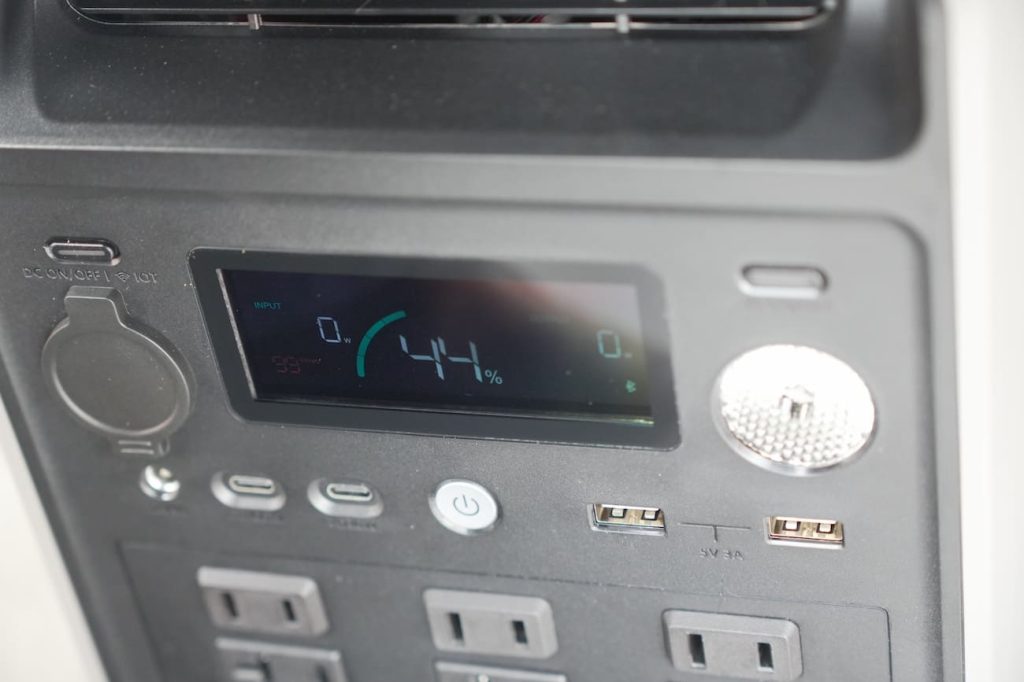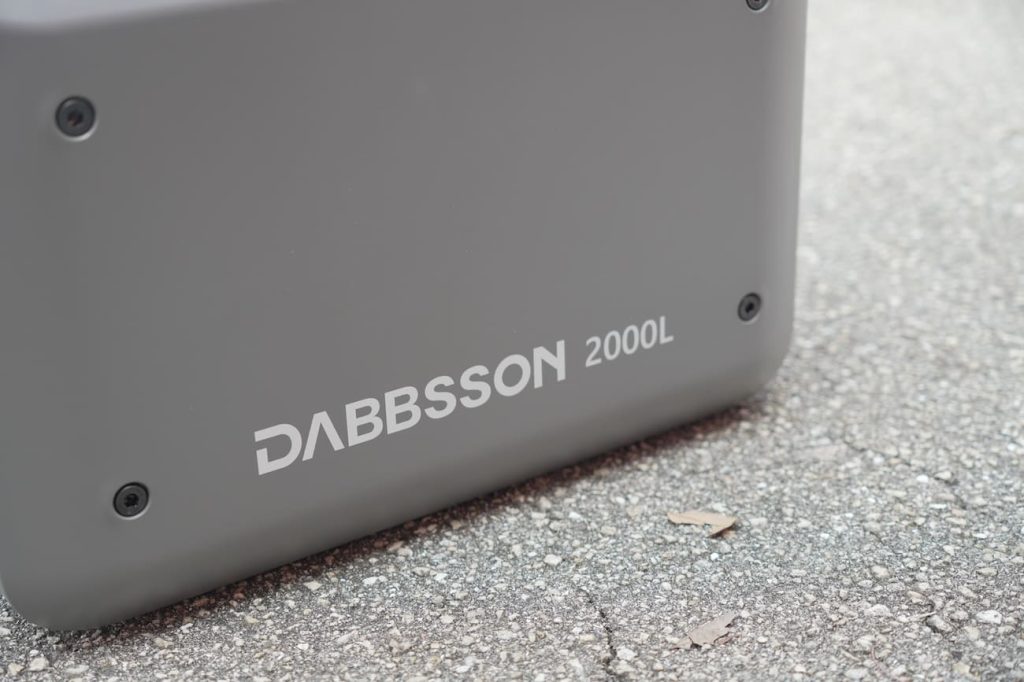
Portable power stations long ago became one of those “why didn’t I get one sooner?” products for me. Whether it’s keeping a fridge running during a power outage, charging cameras in the field, or juicing up my growing fleet of electric bikes, a good battery box is worth its weight in gold. Sometimes I use them simply when I’m too lazy to go find an extension cord! I recently got my hands on the new Dabbsson 2000L power station, and after putting it through its paces, I think this one’s going to earn a permanent spot in my gear lineup – and yes, probably a spot in my e-bike charging garage!
For starters, it’s relatively compact for its 2,048Wh capacity. Measuring roughly the size of a small cooler (11” × 18” × 9” or 28 x 46 x 23 cm) and weighing 41 lbs (18.6 kg), it’s not exactly a lunchbox, but it’s light enough for one person to carry and small enough to stash in a car trunk or camper van shelf without rearranging your life.
One of the first things I tested was the fast-charging claim, and I can say that it’s the real deal. Using Dabbsson’s “P-Boost” mode, I was able to charge the battery from empty to 80% in under an hour from a standard wall outlet. That’s faster than most high-capacity big-name brands, and it’s a huge benefit if you only have a short window to top it up before hitting the road or before the power comes back on after an outage. The 2000L can even handle short bursts of up to 3,300W output, which is overkill for most small electronics but perfect for starting up tools or appliances with a big surge current. I recently got in some electric jet boats, and they have weirdly high power chargers at 2,400W, so this would be for quick field top-ups down by the lake!


There are six 2200W AC outlets, two USB-A ports, a 100W USB-C as well as a 30W USB-C, a 126W car port, and a surprisingly rare 50W DC5521 round port.
That last one might sound niche, but it’s perfect for powering certain fridges, monitors, or field communications gear without wasting energy by going through the inverter. If you’ve ever run a 12V fridge on a power station that only has AC, you know how much extra juice gets lost in conversion – so having a native DC port is a nice touch.
But back to the big test: charging my Velotric Triker. This is a three-wheeled electric cargo trike that can haul kids, groceries, or a whole lot of camera gear for filming days. Its battery isn’t small, but the Dabbsson 2000L can fill it up multiple times without itself needing to be recharged. I plugged the trike into one of the AC outlets, and while the onboard charger isn’t drawing anywhere near the 2000L’s full output rate, it was nice knowing I could recharge multiple e-bike batteries in a day and still have power left over for lights, a laptop, and even running a small fan during breaks.
For anyone using e-bikes off-grid, whether that’s camping, filming, or just riding far from civilization, this power station could keep you rolling for days.

I also tried it in a few other scenarios. In the garage, it ran my shop vac without breaking a sweat. Out in the yard, I plugged in a power saw for a cordless cutting session. The 15ms EPS (Emergency Power Supply) switchover time means that if I use it as an electrical outage solution and the power ever cuts out, like is common in a big storm, the fridge or other major devices I could plug into it would barely blink.
Dabbsson also put some serious thought into off-grid use. The 2000L can take up to 800W of solar input, which means you can recharge it from the sun in around 3.5 hours under ideal conditions, if you have enough solar panels. I had a single panel, which will still let you charge up with a trickle!
Better yet, you can charge from solar and AC at the same time, with solar prioritized. That’s handy for vanlifers who want to grab some extra juice at a campground while still getting the most out of their rooftop panels.
And if you’re worried about battery life, the LiFePO₄ chemistry here is rated for an impressive 4,000 cycles to 80% capacity. That’s years longer than the standard lithium-ion cells found in many cheaper power stations. LiFePO₄ also tends to be more thermally stable, and Dabbsson doubled down on safety with some extreme testing, claiming to pass the nail penetration test (meaning the cells didn’t catch fire when pierced) and withstanding surface temps up to 500°C. I didn’t do a nail penetration test myself, so we’re going to have to decide whether or not to take their word on that one.
They also claim 56 separate extreme-weather tests, so whether it’s sitting in a hot car trunk in summer or running in a chilly campsite, it seems built to handle it.

Noise-wise, it’s impressively quiet. In “silent charging” mode, it stays under 25 dB, which is around the level of a whisper, so you can charge it overnight in a bedroom or use it in a tent without feeling like you’re sleeping next to a server farm.
If I had to nitpick, 41 lbs is quite heavy for longer carries. It’s manageable for short carries, but you’re not throwing it in a backpack and hiking into the woods. And while the compact size is nice, the handle design could be a little more ergonomic for long hauls. But these are small trade-offs for the amount of capacity and features packed into this form factor.
At its current sale price of $649, the Dabbsson 2000L undercuts most of the big-name competition while matching or beating them in fast charging, solar input, and safety features. For e-bike riders, vanlifers, campers, or just anyone who wants a reliable backup power source at home, it’s an easy recommendation. After charging my electric trike, running my chest freezer, and powering tools around the yard, I feel like I’ve only scratched the surface of what it can do.
And honestly, that’s the best kind of problem to have with a portable power station, knowing you’ve got way more capability than you’re likely to ever need. It may be heavy, but that weight is all the extra capacity that is there if you ever need it.
FTC: We use income earning auto affiliate links. More.











